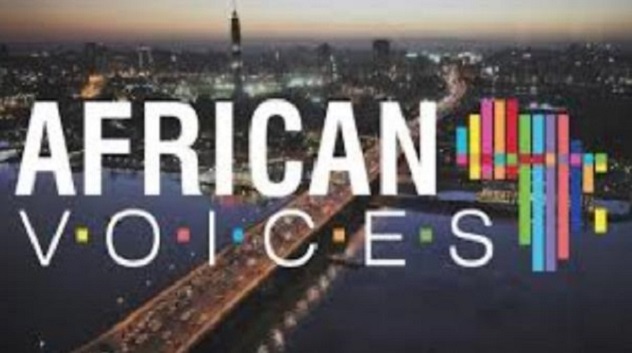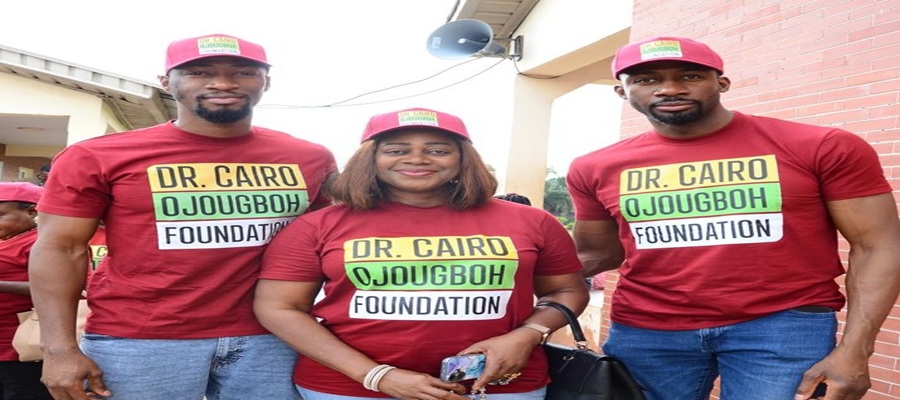Broadcasting
Honeywell Flour Mills Plc: A 12 Month Glance Into The Nigerian Food Manufacturing Sector

By Arike Willoughby
Nigeria’s 200 million estimated population provides huge opportunities for food supply. However, the supply is limited by low productivity in the agriculture sector despite the sector contributing 24% of the country’s GDP.

According to PwC, the agricultural sector, which includes food manufacturing, faces the following issues: lack of access to finance, shortage in the supply of inputs, conflict and insecurity, outdated methods of agriculture, and so on.
Another factor responsible for the demand-supply disparity rests upon Nigeria’s infrastructure limitations, all of which contribute to the increased cost of production. It is also a result of the global oil price instability and the general effects of the COVID-19 pandemic on supply chains and spending power.
But these challenges notwithstanding, there are a few foods manufacturing companies that have weathered the storm and produced remarkable results in the past year. One of such is Honeywell Flour Mills Plc.
The pandemic has significantly changed consumer spending and eating habits. People now rely more on foods that are easy to cook and have longer shelf life. This made it even more expedient for food manufacturers like Honeywell Flour Mills Plc that produce high quality, nutritious staple food products to step into the gap and meet the feeding needs of Nigerians.
In its FY 2021, Honeywell Flour Mills Plc reported the highest-ever revenue in its 23-year history, despite the manner in which the pandemic impacted businesses and the many challenges facing the food manufacturing sector, as discussed above. With revenue of ₦109.5 billion, the company joined the centurion club, an exclusive list of Nigerian companies that have generated over ₦100 billion in annual revenue. This new record represented a 36% increase in revenue for Honeywell, up from the ₦80.4 billion it generated in 2020. The performance was underpinned by initiatives focused on driving customer loyalty, product differentiation, and improving operational efficiency.
Another major contributor to the company’s FY 2021 performance and growth was its increased production capacity. For instance, its over two-year-old pasta factory in Sagamu, Ogun State boosted production capacity with 138,600 metric tonnes of pasta, injecting over ₦19 billion to the company’s revenue figures. Its factories in Apapa and Ikeja also contributed ₦90.5 billion to this growth.
Altogether, this increase in production capacity also meant that the factories could employ more people, a much-needed value addition during trying times. Employing more people also meant that Honeywell directly contributed to the welfare of several families, making it easier for parents to keep food on the table while working in healthy and safe conditions.
However, companies like Honeywell and others within the food manufacturing sector still must battle the effects of the increased cost of production, which is inevitably reflected in food prices. In recent weeks, the conversations around the rising cost of food items in the market have become more prominent. A recent report by the World Bank in Nigeria shows that food prices accounted for over 60% of the total increase in Nigeria’s inflation rate. This contributed to pushing seven million Nigerians below the poverty line in 2020 alone.
But there is light at the end of the tunnel. As both the public and private sectors further invest in agricultural and food manufacturing policies and practices, with more significant and deliberate efforts to improve the value chain, and with a commitment to reduce Nigeria’s import-dependency, things will only get better. If one company can optimise its operations so well that it turns out a significant profit in spite of a pandemic, there’s so much more that can happen when we have more human resources, better government policies and more capital investments from the private sector at play.
By Arike Willoughby is a writer and journalist living in Ikeja, Lagos.
Broadcasting
Pheelz Shares His Journey on Glo-Sponsored African Voices

Nigerian singer, songwriter and producer Pheelz (Phillips Kayode Moses) is set to feature this weekend on African Voices Changemakers, the flagship magazine programme on CNN International.

The 30-minute episode, sponsored by digital solutions company Globacom, premieres on Saturday, February 21, 2026. In a candid sit-down with host Larry Madowo, Pheelz opens up about his journey from church musician to global hitmaker, reflecting on the intersections of faith, fame and the expanding influence of Afrobeats on the world stage.
Now 31, Pheelz began his musical path as a multi-instrumentalist in church before earning widespread acclaim in 2012 as the producer behind the hit tracks “First of All” and “Fucking with the Devil” on Olamide’s YBNL album. His rapid rise saw him named among NotJustOk’s Top 10 Hottest Producers in Nigeria in 2013.
He further solidified his reputation by producing nearly every track on Olamide’s Baddest Guy Ever Liveth, earning nominations at The Headies 2013 and in the Producer of the Year category at both The Headies 2014 and the Nigeria Entertainment Awards. In 2020, he clinched The Headies Producer of the Year award, and in 2021 secured the Soundcity MVP Award for Best Collaboration for “Finesse,” his smash hit with Bnxn (formerly Buju).
On the programme, Pheelz reflects on the experiences that shaped his sound and creative philosophy, discusses landmark collaborations, shares his perspective on artificial intelligence and artistry, and explains why sound, storytelling and culture remain central to African music’s global resonance.
The show airs on DSTV Channel 401 at 8:30 a.m. (WAT) on Saturday, with repeat broadcasts at 12:00 noon the same day; Sunday at 4:30 a.m. and 7:00 p.m.; Monday at 4:00 a.m. and 6:45 p.m.; and Tuesday at 6:45 p.m. The broadcast schedule continues through Monday of the following week.
Broadcasting
Dr. Cairo Ojougboh Foundation Bolsters Nigeria’s Education Drive with ₦2.7m Student Support

Dr. Cairo Ojougboh Foundation has reinforced government’s educational development efforts in Nigeria through a targeted initiative honouring the late medical doctor and House of Representatives member, Dr. Cairo Ojougboh.

L-R: Son of the late Dr, Cairo Ojougboh, Mr. Nkem Ojougboh; Chairperson, Dr. Cairo Ojougboh Foundation, Mrs. Bose Ojougboh and another son, Mr. Orieka Ojougboh, during the event in Agbor, Delta State recently.
The foundation recently hosted a programme themed “Your Future, Your Choice” at St. Columba’s Grammar School in Agbor, headquarters of Ika South Local Government Area, Delta State.
It presented a cheque of ₦2,700,000 to cover examination fees for students preparing for West African Examinations Council (WAEC), National Examinations Council (NECO), and Junior Secondary School (JSS) 3 exams.
Academic excellence received further boosts with cash rewards for top students across the school’s nine academic arms, alongside distributions of notebooks and writing materials to enhance learning.
Chairperson Mrs. Bose Ojougboh, joined by her sons Mr. Nkem and Mr. Orieka Ojougboh, urged students to view challenges as stepping stones, embrace discipline, consistency, and focus, and make intentional choices shaping their futures.
“The school that moulded Dr. Cairo’s values deserves our support,” she said, highlighting the foundation’s commitment to inspiring hard work and personal growth.
Old Boys of St. Columba’s Grammar School, led by Elder Ndudi Agholor, attended in force, sharing nostalgic reflections and praising the school’s sustained high standards under current leadership.
School Principal Rev. Fr. Joseph Ugboh and Ika South LGA Chairman Engr. Jerry Ehiwarior lauded the initiative as “commendable and impactful,” calling for its continuation to preserve Dr. Ojougboh’s legacy of discipline, excellence, and service.
They noted the support had motivated students to pursue their goals with renewed determination, ending the event on a hopeful note.
Broadcasting
New Horizons Nigeria Breaks Ground: First to Fuse Mandarin into ICT Curriculum

In a landmark educational innovation, New Horizons Nigeria has become the first institution to integrate the Chinese (Mandarin) language into its ICT curricular as an elective, thereby positioning Nigerian students for relevance in the rapidly changing world order.

Mr. Tim Akano, Managing Director and CEO of New Horizons Systems Solutions Limited
New Horizons Nigeria is a leading ICT training and solutions provider committed to provide individuals and institutions with future-ready skills. Through innovative program, global partnerships, and strategic foresight, the organization continues to redefine education, workforce development, and global competitiveness.
With over 80% of global consumer products manufactured in China and China’s growing dominance in global supply chains and labour markets, New Horizons Nigeria recognizes the urgent need for the current generation to understand, speak, and engage with the Chinese language and culture. As global economic power dynamics evolve, the labour market is increasingly tilting towards China, making Mandarin proficiency a critical competitive advantage.
According to Mr. Tim Akano, Managing Director and CEO of New Horizons Systems Solutions Limited, Nigeria, the program represents far more than a language course.
He asserted that very soon, the global labour market is likely to increasingly reflect China’s influence rather than the predominantly western orientation it currently exhibits. Language will be a major differentiator and the first Chinese-speaking technology experts in Nigeria will have a significant advantage, especially in integration into Chinese companies operating locally and globally.
Therefore, New Horizons Nigeria has officially launched a Mandarin Scholarship Program with China Advancement Opportunity, selecting 100 outstanding students from five prominent Nigerian secondary schools. This initiative marks a major milestone in Nigeria–China educational cooperation and reflects a forward-thinking response to shifting global economic realities.
Furthermore, the scholarship program has commenced with an intensive three-month online Mandarin training and at the end of the program, the top-performing students will be selected strictly on merit. 20 outstanding students will receive an additional scholarship valued at $2,500 per students to participate in a one-year pre-degree Mandarin and cultural immersion program in China. From this group, the best candidates will progress to fully funded admission scholarships into top universities in China. This initiative is designed not only to build language proficiency but also to enhance global competence, international exposure, and cultural intelligence among Nigerian students.
Also, to maintain international academic standards, participating schools are required to comply with strict guidelines. They will be obligated to join the online classes ten minutes earlier, they must have a minimum of 85% attendance throughout the program, and must ensure they have a stable internet connectivity, reliable power supply and a conducive learning environment.
Therefore, School owners and administrators have been formally congratulated and strongly encouraged to nominate their most disciplined, and committed students, as advancement to the China program will be strictly merit-based.
However, apart from students, internation business men are equally encouraged to attend New Horizon’s Mandarin executive lessons which will equip them with basic Chinese language to enhance their business communications.
Additionally, while the pilot phase begins with selected secondary schools which includes Startrite School, Lightway School, British Nigerian Academy School, Honeyland Schools and Great Heights School, the Mandarin program will be available as an elective ICT course at all New Horizons retail centers.
This is done to extend access to students and learners beyond its partner schools and within one year, committed learners will be able to communicate effectively in Mandarin, which will open doors to global employment, trade, and cultural exchange.
In conclusion, a Mandarin Cultural Fiesta will be hosted, bringing together educators, students, institutional partners, and distinguished guests from China and Nigeria. The event will celebrate outstanding performance, cross-cultural exchange, and the strengthening of bilateral educational ties.
For enquiries and participation details, interested individuals are encouraged to contact New Horizons Nigeria via 08125541750

 E-Financial3 days ago
E-Financial3 days agoEcobank Nigeria Fully Repays $300m Eurobond Notes

 E-Financial3 days ago
E-Financial3 days agoZenith Bank Warns Public Over Fake Jim Ovia Investment Videos

 E-Financial1 day ago
E-Financial1 day agoACAMB Educates Content Creator to Curb Misinformation on Bank Recapitalisation

 General News2 days ago
General News2 days agoPalmPay Unveils First Batch of Winners in #LoveWithPalmPay Campaign

 E-Business3 days ago
E-Business3 days agoChams Carves Out Subsidiary to Support Africa’s Digital Transformation

 Telecom2 days ago
Telecom2 days agoBanks, Telcos Settle Four-Year Dispute over N300Bn USSD Debt

 E-Financial3 days ago
E-Financial3 days agoBoI Secures CBN’s Approval for Non-interest Banking Operation

 E-Financial2 days ago
E-Financial2 days agoFirstCap MD says Payment Security Remains Biggest Barrier to Bankable Gas and Power Projects


























